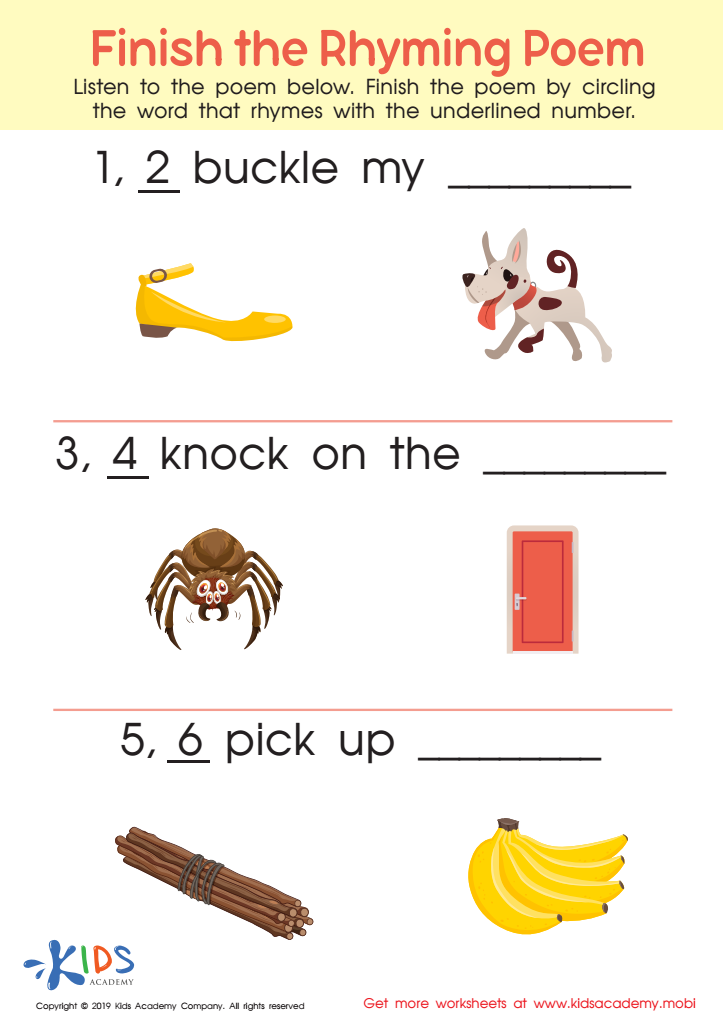Vocabulary enhancement Normal Worksheets for 4-Year-Olds - Page 4
73 filtered results
-
From - To


Finish Rhyming Poem Worksheet
Vocabulary enhancement for 4-year-olds is crucial for several reasons. At this developmental stage, children experience rapid brain growth, with language skills blossoming significantly. A rich vocabulary supports their ability to express thoughts and feelings, fostering effective communication and social interactions. Furthermore, a strong vocabulary is linked to improved reading skills; children who are exposed to a diverse range of words are more likely to excel in literacy as they progress in school.
By prioritizing vocabulary development, parents and teachers can create a robust foundation for lifelong learning. Engaging in conversations, reading books together, and playing word games not only enrich vocabulary but also spark curiosity and cognitive development. These activities enhance listening and comprehension skills, preparing children for more complex linguistic tasks as they grow.
In a broader context, a well-developed vocabulary promotes confidence and self-expression, which are vital for emotional development. Children who express themselves clearly are better equipped to navigate social dynamics and academic challenges. Ultimately, investing in vocabulary enhancement is investing in a child's overall growth, ensuring they have the tools to succeed both in school and in life. By fostering a love for words early on, parents and teachers can set children on the path to effective communication and future success.

 Assign to My Students
Assign to My Students





















